Jürgen Moltmann Collection (22 vols.)
Digital Logos Edition
Overview
German Reformed theologian Jürgen Moltmann is one of today’s most influential Christian thinkers. Proclaiming a theology built on eschatology and the hope found in the resurrected Christ, he believes that God’s promise to act in the future is more important than the fact that God has acted in the past. For Moltmann, hope and faith depend on each other to remain true and substantial; only with both may one find “not only a consolation in suffering, but also the protest of the divine promise against suffering.”
Though deeply theological, Moltmann’s work remains pastoral and easily accessible. He draws from his experiences in WWII POW camps, which spurred him to Christianity in the first place, and asserts that hope in Christ should be the central motivating factor in the church’s life and thought. His unique approach to theology, as well as his incorporation of insights from liberation theology and ecology into mainstream theological thought, has garnered national acclaim and earned him the 2000 Grawemeyer Award in Religion.
With the Logos Bible Software edition of the Jürgen Moltmann Collection, you have Moltmann’s insight and wisdom at your fingertips. Scripture passages appear on mouseover, and all cross-references link to the other resources in your digital library, making this collection powerful and easy to access—a cornerstone resource for any study on eschatology or hope. Perform comprehensive searches by topic or Scripture reference—finding, for instance, every mention of “hope” or “eternity.”

- Comprehensive collection of Jürgen Moltmann’s theological works
- Insight into Moltmann’s “theology of hope”
- Moltmann’s autobiography
- Title: Jürgen Moltmann Collection
- Volumes: 22
- Pages: 5,706
- Christian Group: Reformed
- Resource Type: Collected Works
- Topic: Theology
This title is included in the following collections
You can save when you purchase this product as part of a collection.
2025 Lutheran Diamond
$2,999.99$2,249.99Logos 7 Lutheran Diamond Legac...
$2,999.99$2,999.99Logos 7 Reformed Diamond Legac...
$2,999.99$2,999.992025 Lutheran Portfolio
$4,749.99$3,562.49
- $4,749.99
- $4,749.99
- $11,399.99
- $23,999.99$17,999.99
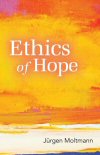
For a time of peril, world-renowned theologian Jürgen Moltmann offers an ethical framework for the future.
Long distinguished as the architect of political theology and father of the theology of hope, Moltmann has shown how hope in the future decisively reconfigures the present and shapes our understanding of central Christian convictions, from creation to New Creation.
Now, in an era of unprecedented scientific advances alongside unparalleled global dangers, Moltmann has formulated his long-awaited Ethics of Hope. Building on his conviction that Christian existence and social matters are inextricably tied together in the political sphere, Moltmann unfolds his ethics in light of eschatology, clearly distinguishing it from prior and competing visions of Christian ethics. He then specifies his vision with an ethic of life (against the dominant ethic of death), an ethic of earth (against today’s utilitarian ethic), and an ethic of justice (against today’s social injustice and global conflicts). In the process, he applies this framework to concrete issues of medical ethics, ecological ethics, and just-war ethics.
A creative and programmatic work, Ethics of Hope is a realistic assessment of the human prospect, as well as its imperatives, from one who stakes everything on God’s promise to rescue life from the jaws of death.
In Ethics of Hope, Jürgen Moltmann makes a significant contribution to Christian ethics that will be of interest not only to scholars but to students, pastors, and lay people as well. Addressing the central ethical issues facing our time, Moltmann’s distinctively Christian way of doing ethics—from the standpoint of a ‘transformative eschatology’—presents a highly refreshing alternative to existing approaches to Christian ethics.
—Lois Malcolm, Luther Seminary
A summary of a life-time of intellectual labors, personal experiences, and global encounters of a truly great theologian. Full of deeply human wisdom drawn from the well of the Christian faith.
—Miroslav Volf, Yale University
What does hope in action look like? Moltmann’s Ethics of Hope shows us. In this long-anticipated companion to his groundbreaking 1964 book, Theology of Hope, Moltmann directs our attention to ‘endangered life, the threatened earth, and the lack of justice and righteousness.’
—Kristine A. Culp, University of Chicago
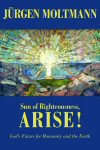
The astonishing theological creativity of Jürgen Moltmann continues in this new work Sun of Righteousness, Arise! and proclaims a vision of the Christian future, centered in God, God’s reign, and God’s justice and righteousness.
Moltmann brings the biblical, historical, and theological elements of a new, integrated Christian worldview to light in conjunction with contemporary understandings of nature and the evolving universe. Anchored in the resurrection of Jesus, such a vision affirms that God is the God of resurrection promise, God is present in justice and righteousness, Jesus is the son of righteousness, and nature can be seen as the site of God’s work toward the fulfillment of life. Here is a theological vision that can integrate our faith, inform our worldview, and fuel our life engagements.
Forty years later, Moltmann’s ‘theology of hope’ still reads like a breath of fresh air, this time carried by the winds that have picked up in the meanwhile, in particular his foundational deconstruction of monotheism via a vision of the Trinitarian history of God and, more recently, his peculiarly delightful ideas about theology of nature. What is new here that holds everything together, however, is a theology of the resurrection that is Christologically focused, scientifically literate, and existentially inspiring.
—Amos Yong, J. Rodman Williams Professor of Theology, School of Divinity, Regent University

Jürgen Moltmann’s life and work have marked the theological history since WWII like no other. He is the most widely read, quoted, and translated German theologian of our time. Now, after celebrating his eightieth birthday, he looks back on a life that has been engaged in forging a Christian response to the tumult and opportunities of our age. In his autobiography Moltmann tells his compelling life story, from his Hamburg youth in an unconventional home up to the “incompleteness” of the present moment. His narrative sheds light on the creative arc of Moltmann’s work, on the journey of his own theological development from its beginnings after World War II through the beginnings of political theology and, most phenomenally, the advent of the theology of hope.
A wide-ranging alert to the deeper currents of his time and ours, Moltmann’s work is an engrossing reconsideration of a life full of intense experience and new beginnings.
Jürgen Moltmann may be the most renowned theologian living today. . . His autobiography offers us the chance to understand him better than ever before.
—The Christian Century
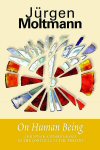
Moltmann explores the idea of human dignity and humanity in general through an anthropological perspective, attempting to reconcile these notions within a globalized world.
This series of sketches provides a basis for Moltmann’s view of man and woman as socially and politically responsible beings. Moving quickly through biological, cultural, religious, and Christian anthropology, he locates the contemporary problems of humanism in a technological (and inhuman) society . . . While the future remains central, its features are somewhat sobered in the emphasis on suffering love.
—Anne Carr, University of Chicago
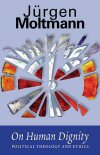
“It is the duty of the Christian faith to stand for the dignity of human beings in their life with God and for God.” —Jürgen Moltmann
This collection of provocative essays by one of the world’s most distinguished theologians deals with diverse topics, covering the right to work, nuclear war, the Olympic Games, Lutheran and Reformed political thought, and the “common hope” of Judaism and Christianity—all within the framework of human rights. Jürgen Moltmann believes that the dignity of the human being is the source for all human rights; if this dignity is not acknowledged and exercised, human beings cannot fulfill their destiny of living as the image of God.
Readers who know Moltmann’s earlier works . . . will welcome these essays for their clear and succinct application of his quite distinct theological perspective to a diverse and wide range of topics. He is not so much writing about the relation of social and political ethics to theology; rather, he is doing political theology in a lively and concrete way.
—Donald L. Berry, Harry Emerson Fosdick Professor of Philosophy and Religion Emeritus, Colgate University
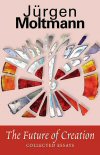
In these essays, written during the fertile years between Theology of Hope and The Church in the Power of the Spirit, world-renowned theologian Jürgen Moltmann demonstrates the remarkable depth and rhetorical power so characteristic of his major works. Here collected in one volume are brief, vital articulations of Moltmann's thought on such topics as eschatology, transcendence, hope, creation, the theology of the cross, the Trinity, development, the practice of liberation, justification, and biomedical progress.
These essays are not the type one frequently encounters in collections of this kind. They are not the ‘dribblings’ left over from earlier works, nor are they summaries for theological readers ‘on the run.’ In one sense they give us a theological road map as Moltmann plotted his course. They offer one of the best and most readable analytical surveys of contemporary methods in eschatology. They probe the ‘patripassianism’ entailed in the doctrines of Christology and Trinity. The point us toward a fuller comprehension of the doctrine of creation and its interconnectedness within the whole scope of Christian belief.
—James C. Logan, professor of theology emeritus, Wesley Theological Seminary
In Moltmann, one meets a special combination of a strict orthodoxy and daring openness of interpretation.
—Arthur R. Peacocke, Journal of Theological Studies
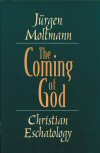
In this remarkable and timely work—in many ways the culmination of his systematic theology—world-renowned theologian Jürgen Moltmann stands Christian eschatology on its head. Moltmann rejects the traditional approach, which focuses on the end, an apocalyptic finale, as a kind of Christian search for the “final solution.” He centers instead on hope and God’s promise of new creation for all things. “Christian eschatology,” he says, “is the remembered hope of the raising of the crucified Christ, so it talks about beginning afresh in the deadly end.”
Yet Moltmann’s novel framework, deeply informed by Jewish and messianic thought, also fosters rich and creative insights into the perennially nettling questions of eschatology: Are there eternal life and personal identity after death? How is one to think of heaven, hell, and purgatory? What are the historical and cosmological dimensions of Christian hope? What are its social and political implications?
In a heartbreakingly fragile and fragmented world, Moltmann’s comprehensive eschatology surveys the Christian vista, bravely envisioning our “horizons of expectation” for personal, social, even cosmic transformation in God.
[Moltmann’s systematic work] thrives on the cutting edge of Christian theology as it nears the twenty-first century. . . It will challenge and stimulate a whole generation of theologians to work at theology in different and more comprehensive ways.
—M. Douglas Meeks, Religious Studies Review
His theme is not the end but rather the new beginning of all things-in personal life, in humanity's communal historical life, and in the whole life of the cosmos. So, for Moltmann, ‘the true creation stands beside us and, primarily, before us.’
—Frankfurter Allgemeine Zeitung
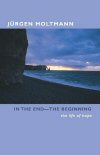
“In my end is my beginning,'” wrote T. S. Eliot, and Jürgen Moltmann’s new book is a powerful testament to personal hope in chaotic, even catastrophic times.
As Moltmann’s award-winning volume The Coming of God laid out the systematic framework of eschatology (the doctrine of the “last things”), so here he explores the personal meaning of that fundamental affirmation for Christians. Debunking the classic images of Christian apocalyptic scenarios, the final struggle between God and Satan, Christ and the Antichrist—Armageddon—Moltmann instead shows that Christian expectation of the future has nothing to do with these but everything to do with new beginnings and a horizon of hope. Three parts explore three particular beginnings: birth (childhood and youth), rebirth (failures and defeats), and resurrection (death, judgment, afterlife).
This brief volume promises to be one of Moltmann’s most personal and compelling books.
In our time, beset by end-of-history threats of fanatical apocalyptic terrorism and by progressive everyday terrorism that millions suffer through globalization, Moltmann here uncovers the grace-filled beginnings of peace and the love of life that God is already making present to us and the whole creation.
—M. Douglas Meeks, Vanderbilt Divinity School
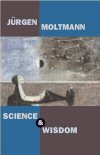
Moltmann’s new book offers a careful theological reading of our contemporary scientific worldview and directly addresses the related cultural dilemmas. Moltmann begins by analyzing the identification of science with the modern spirit and the religious assumptions that inform Western science. He affirms the positive side of scientific advancement, sees the present crisis clearly, and looks for wisdom that can guide our scientific and religious future. The heart of Moltmann’s work is a theological understanding and assessment of contemporary cosmology. Core chapters look at creation as an open system, the self-emptying or kenosis of God in the history of the universe, eschatology, the problems of time and eternity, and the idea of God and space. In the final chapters he addresses specific questions in bioethics, historical conflicts between religion and science, and cosmology in a world religious context.
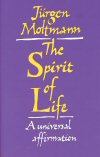
Moltmann, “the foremost Protestant theologian in the world,” brings his characteristic audacity to this traditional topic, cutting to the heart of the matter with a simple identification: What we experience every day as the spirit of life is the spirit of God. Such considerations give Moltmann’s treatment of the different aspects of life in the Spirit a verve and vitality that are concrete and existential.
Veteran readers will find a rich and subtle extension of Moltmann’s Trinitarian and Christological works as he makes bold use of key insights from feminist and ecological theologies. Newcomers will find a fascinating entree into the heart of his work: the transformative potential of the future.
Moltmann develops a theology of the Holy Spirit that links the Christian community’s experience of the Spirit to the sanctification and liberation of life. He brilliantly displays the ecological and political significance of Christian belief in the Trinity.
—Francis Schüssler Fiorenza, Harvard Divinity School
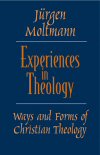
Theology always has been, and is for Moltmann, not an abstract or otherworldly endeavor, but one nourished by, and responsive to, experiences in and with life itself. In this volume, the final in his series of Beiträge (systematic “contributions” to theology), Moltmann revisits the landmarks of his own theological journey. He examines those intersections of his own life with contemporary events that have kindled and impelled his theological thinking The perspective of hope, the central moment in Moltmann’s thought, is freshly explained, while other basic theological themes and concepts are developed and interrelated.
But, more than that, Moltmann uses these theological tinders to spark the flames of the chief directions in liberating theological thought today—black, Latin American, Minjung, and feminist theologies—and the central motif of Trinity.
This volume not only introduces Moltmann’s theology, but it also utilizes the contemporary religious and political scene to incite the novice’s own theological reflection.
Moltmann’s systematic work thrives on the cutting edge of Christian theology. . . . It will challenge and stimulate a whole generation of theologians to work at theology in different and more comprehensive ways.
—M. Douglas Meeks, Vanderbilt Divinity School
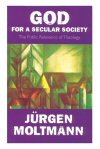
In this masterful analysis of the religious and political dilemmas at the end of the modern age, world-renowned theologian Jürgen Moltmann assays the vaulting dreams and colossal failures of our time. He asks how we came to this point, and he argues strenuously for Christian discipleship and public theology that take sides. In both critical and creative ways he advances the specific relevance of Christian messianic hope to today’s thorniest political, economic, and ecological questions—including human rights, environmental rights, globalization, market capitalism, fundamentalisms, and Jewish-Christian relations—and the deeper values contested therein.
In a world reeling between utopia and disaster, Moltmann passionately and provocatively shows how Christian discipleship, through engagement and solidarity, can blaze a redemptive path.
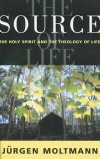
Directly, simply, and forcefully, Jürgen Moltmann presents his reflections on the Spirit and the spiritual life that were the essence of his prior book, The Spirit of Life. In this short, accessible work, he combines a deep personal faith with admirable learning and experience.
Moltmann views the Holy Spirit as the power of new life, which enlivens body and soul, spirit and mind. In the Holy Spirit we experience the presence of God, community among people, as well as between humans and all created living things on earth.
Beginning with his experiences as a prisoner of war, Moltmann anchors his reflections in a theology of life—and the Spirit as renewer of life—which ties biblical perspectives to contemporary manifestations, hope to holiness, creation to community, and spirituality to prayer. Moltmann at his best, this little theology stimulates the experience of the Holy Spirit in one's own life.
Moltmann’s systematic work thrives on the cutting edge of Christian theology. . . . It will challenge and stimulate a whole generation of theologians to work at theology in different and more comprehensive ways.
—M. Douglas Meeks, Vanderbilt Divinity School
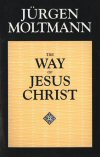
Jürgen Moltmann discusses how the “the way of Christ” is presented as a symbol that embodies process. The symbol encompasses Christ’s way from his birth in the Spirit and his baptism in the Spirit to his self-surrender on Golgotha. It makes it possible to understand the path of Christ as the way leading from his resurrection to his parousia—the way he takes in the Spirit to Israel, to the nations, and into the breadth and depth of the cosmos.
This symbol makes us aware that every human Christology is historically conditioned and limited. Every human Christology is a “Christology of the way,”not yet a “Christology of the home country;” a Christology of fait, not yet a Christology of sight. So Christology is no more than the beginning of eschatology; and eschatology, as the Christian faith understands it, is always the consummation of Christology.
He asserts that every way is an invitation. It is something to be followed. “The way of Jesus Christ” is not merely a Christological category. It is an ethical category as well. Anyone who enters upon Christ’s way will discover who Jesus really is; and anyone who really believes in Jesus and the Christ of God will follow him along the way he himself took. Christology and christopraxis find one another in the full and completed knowledge of Christ. This Christology links dogmatics and ethics in closer detail than in the previous volumes.
An event—this study of ‘Christology in messianic dimensions’ has a massive strength which will secure its place alongside Moltmann’s earlier book. . . This book has a unity and a freshness which will make it a must for fans and a possibility for novices.
—Church Times
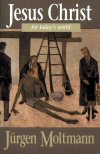
Jürgen Moltmann formulates necessary questions about the significance of Jesus the Christ for persons today. He offers a compelling portrait of the earthly Jesus as the divine brother in our distress and suffering and points to the risen Christ as the warrant for the “future in which God will restore everything . . . and gather everything into his kingdom.” Urging that acknowledgment of Christ and discipleship are two sides of the same coin, Moltmann contends that the question of Jesus Christ for today is not just an intellectual one. Moltmann takes fresh approaches to a number of crucial topics: Jesus and the kingdom of God, the passion of Christ and the pain of God, Jesus as brother of the tortured, and the resurrection of Christ as hope for the world, the cosmic Christ, Jesus in Jewish- Christian dialogue, the future of God, and others.
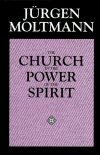
“The Church will have no future if it simply extrapolates into the future the path it took in the past. It will only have a future if it anticipates the kingdom of God in Jesus’ name and is prepared to be converted to his future, freeing itself from imprisonment in the past,” Jürgen Moltmann writes in the preface to The Church in the Power of the Spirit, a book that sets the doctrine of the church and the sacraments in the perspective of the Holy Spirit. He offers the church a mirror, seeking to rediscover the dimensions of pneumatology and to understand God as God of community.
This book, which in my opinion is Moltmann’s best, can be recommended on the basis that it contains challenging and creative insights that can be used by the discriminating reader in the service of church renewal. . . Moltmann represents the theology of liberation at its best, and those who wish to know more about this theology would do well to study this creative and searching theologian.
—Christianity Today
Moltmann is perhaps unsurpassed among his contemporaries in keenness of insight and rhetorical power.
—Theology Today
Moltmann presents a stirring vision which every Christian community could well ponder. . . With a missionary emphasis, he seeks to help the reader face the question of the church’s identity in the light of the contemporary political, economic, and social scene.
—Religious Education
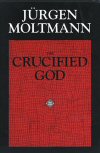
“The criticism of the church and theology which we have been fortunate enough to experience, and which is justified on sociological, psychological, and ideological grounds, can only be accepted and made radical by a critical theology of the cross,” Moltmann writes in the preface to The Crucified God. Thoroughly examining the theology of the cross, he explores the crucifixion and resurrection of Christ, and seeks to revolutionize the concept of God, and thereby making his theology of hope more concrete.
This is Jürgen Moltmann’s best and therefore most important book. He has substantially changed the central thrust of his theology without sacrificing its most vital element, its passionate concern for alleviation of the world's suffering.
— Langdon Gilkey
The Crucified God rewards, as it demands, the reader’s patient and open-minded attention, for its theme is nothing other than the “explosive presence” of the sighting and liberating Spirit of God in the midst of human life.
— The Review of Books and Religion
A timely reminder to disillusioned visionaries—who too quickly abandon the struggles for personal and political liberation—that the risen Christ reigns from the cross. Moltmann follows the path of crucifixion into the Godhead itself, reaching a profundity of interpretation that is rare in Trinitarian thought.
— The Christian Century
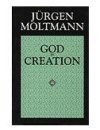
Jürgen Moltmann implores readers to stop distinguishing between God and the world, and to stop surrendering the world to scientific “disenchantment” and technical exploitation by human beings. He asks them to instead discover God in creation and find God’s life-giving Spirit in the community of creation. This view—which has also been called panentheistic (in contrast to pantheistic)—requires us to offer reverence for the life of every living thing into the adoration of God. And this means expanding the worship and service of God to include service for God's creation.
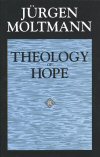
Jürgen Moltmann shows how theology can begin in hope and be considered as a theme in an eschatological light. He digs deep into the foundations of the hope of Christian faith and into the exercise of this hope in thought and action in the world today. The various critical discussions should not be understood as rejections and condemnations. They are necessary conversations on a common subject which is so rich that it demands continual new approaches.
A stimulating and important book, a ‘must’ for every theological student and every preacher who wishes to become acquainted with the most significant movement in contemporary continental theology.
—The Christian Century
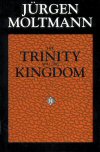
Moltmann offers a unique look at Trinitarian theology by examining the nature of the Trinity through the lens of a suffering God. He encourages readers to plunge into the mystery of the triune God, and to embrace an experiential knowledge of God’s love.
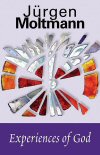
Enduring meditations on hope, anxiety, and mystical experience, together with the author’s personal confession of faith.
[Moltmann] writes in a rather personal way about his own pilgrimage of belief, conscious always of the world events which were and are the context of his journey. . . . In a society where ‘true believer’ variety of Christianity has come to dominate, Moltmann's reflections are a refreshing restatement of authentic biblical and Reformation faith.
—Douglas John Hall, professor emeritus of Christian theology, McGill University
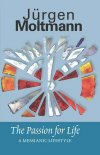
The Passion for Life: A Messianic Lifestyle
- Author: Jürgen Moltmann
- Publisher: Augsburg Fortress
- Publication Date: 1978
- Pages: 128
Jürgen Moltmann presents a theology from the perspective of a layperson in the congregation and addresses the question as to whether a Christian congregation can be formed in a post-industrial society. Making a persuasive case that the most crucial thing that today’s churches need is passion, he looks deep into the heart of the church and examines what it would take to regain that passion.
This is the kind of book that every theologian in every generation should be invited to write. . . . For someone who has not yet read any of Moltmann’s work, this book would be a palpable way in which to begin. For a pastor or lay person who has read widely in Moltmann's corpus, this would be a worthy rehearsal of dominant themes. For the theological specialist who has read everything of Moltmann in both German and English, The Passion for Life would constitute a gentle reminder that theology exists for the sake of the congregation.
—Foundations
This book advocates a style of life for the Christian community that is properly communal, and also ‘theological’ in that it brings together action and reflection. Moltmann argues his right to speak as a member of ‘the people’ on the basis not of his place in the church but of his experience as an anonymous prisoner toward the end of World War II.
—Anglican Theological Review
Jürgen Moltmann studied Christian theology in England and, after his return to Germany, in Göttingen. He served as a pastor from 1952 to1958 in Bremen. Since 1967 he has been Professor of Systematic Theology at the University of Tübingen and retired there in 1994. Among his many influential and award-winning books are The Theology of Hope (1967), The Crucified God (1974), The Trinity and the Kingdom (1981), The Spirit of Life (1994), and The Coming of God (1996), winner of the Grawemeyer Award in 2000, all published by Fortress Press.
Reviews
6 ratings

JOHAN BUITENDAG
4/11/2019
He turned 93 on 8 April. The greatest living theologian today in the ecumenical tradition.Stephen
4/22/2018

Charles Puskas
4/19/2015

Bobby Terhune
10/13/2013

DrGregWaddell
1/3/2013
I am really looking forward to the release of these books for Logos. As one of my professors used to say, "You may not always agree with him, but you cannot be an educated theologian today without knowing Moltmann."